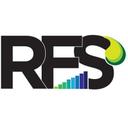Canada releases Clean Fuel Standard framework

December 14, 2017
BY Tim Albrecht
Environment and Climate Change Canada released the preliminary Clean Fuel Standard regulatory framework Dec. 13, according to a press release from non-profit Renewable Industries Canada.
The goal of the proposed framework is to achieve 30 million metric tons (33.1 million tons) in GHG emissions annually by 2030, which contributes to the country’s effort to achieve an overall GHG mitigation target of 30 percent reduction below 2005 levels.
The clean fuel standard will establish lifecycle carbon intensity requirements separately for liquid, gaseous and solid fuels that are used in transportation, industry and buildings. This performance-based approach will incent innovation, development and use of a broad range of low carbon fuels, energy sources and technologies.
Advertisement
“Our association supports the government of Canada’s objectives and is encouraged that, in the short term, the CGS’s intensity based targets will be backstopped by existing biofuel mandates. This combination of policy levers will help ensure that heightened demand for biofuels is met by increased domestic supply,” said RICanada Chairman Jim Grey.
Scott Lewis, vice chair of RICanada, and executive vice president of biofuel producer BIOX Corp., said, “The domestic biofuel industry has grown to the point where it is now generating gross economic benefits in excess of $3.5 billion to the Canadian economy each year. This announcement will also bring to Canada a credit trading market for biofuels that is essential in our ability to continue to bring low carbon fuels to consumers at competitive prices, while allowing for some flexibility in compliance.”
Advertisement
The framework builds on existing policy that mandates the blending of 5 percent ethanol and 2 percent biodiesel into Canada’s transportation fuels. The 2010 mandates have reduced GHG emissions by more than 4 million tons per year, which is the equivalent of removing 1 million cars from Canada’s roads each year.
Greenfield Global, a producer of corn-based bulk industrial alcohol, packaged alcohol and fuel ethanol, President and CEO Howard Field welcomed the next stage of the process, saying, “By harnessing the benefits of biofuels within a clean fuel standard, Canada can make even stronger inroads in tackling climate change. We look forward to continued work with the Government on this ambitious policy.”
A copy of the Clean Fuel Standard regulatory framework is available here.
Related Stories
The U.S. EPA on Jan. 17 published its third triennial report to Congress on biofuels and the environment. The document, the third in a series of required reports to Congress, takes a critical view of the RFS’s impact on the environment.
Clean Fuels is asking the U.S. EPA to pause the rulemaking process on its proposed partial waiver of 2024 cellulosic volumes until it can provide a full accounting of all available cellulosic RINs for 2024 and consider the impact of SREs.
The U.S. EPA on Jan. 17 released updated data showing that more than 25.22 billion renewable identification numbers (RINs) were generated under the Renewable Fuel Standard in 2024, up from 23.85 billion in 2023.
Lee Zeldin, President-elect Donald Trump’s nominee to serve as U.S. EPA administrator, on Jan. 16 responded to questions regarding his support for the RFS, E15 and SAF during a hearing held by the Senate Environment and Public Works Committee.
The U.S. EPA on Jan. 16 released updated small refinery exemption (SRE) data, showing 11 new SRE petitions have been filed under the Renewable Fuel Standard. The agency denied one SRE petition and 139 SRE petitions remain pending.
Upcoming Events










